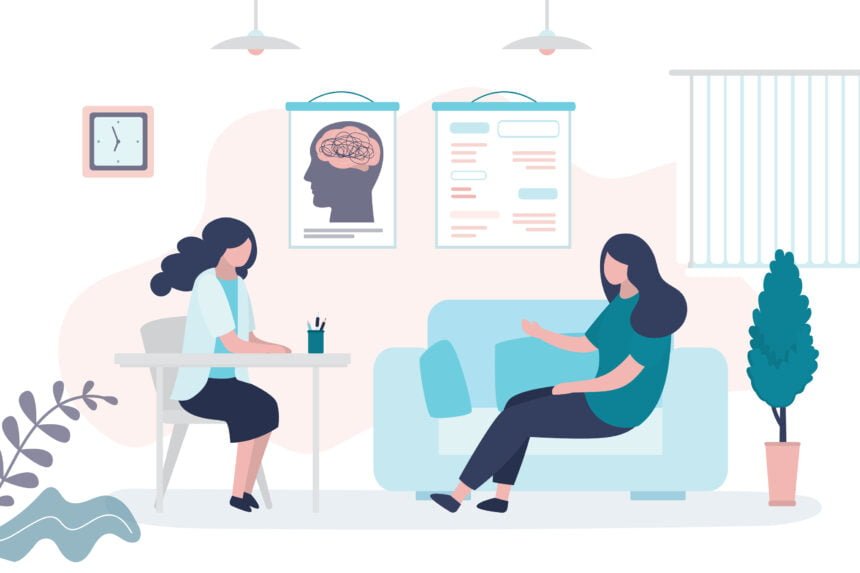Did you know that according to Zippia, there are 37,514 mental health professionals in the United States? As a mental health specialist, you know that patients need more than just medication and counseling to improve. You have to consider their physical health as well.
To give them the best possible care, you need tools like practice management software that can help streamline processes like billing and scheduling appointments. So, you can focus more on providing your patients quality care instead of spending all day buried in paperwork. Here’s a quick rundown of how practice management software can help.
Better Billing and Payments
As a mental health provider, you want your clients to pay their bills on time. You also want to ensure you’re getting paid quickly and efficiently. With mental health practice management software, it’s easy to keep track of all of your financial transactions and billings in one place.
The software will automatically generate bill reminders and send them out at the right time so that you don’t have to manually contact your clients about their outstanding balances.
If your practice is large enough, it can also help streamline the process of collecting payments by allowing you to set up auto-billing or automatic invoicing through direct debit or credit card processing services. It can save time while reducing the chance of errors when it comes time for payment processing. A sound practice management system will ensure that everything goes smoothly from the beginning through the end.
Streamline Administrative Tasks
To keep your practice running smoothly and at peak capacity, you need to reduce the time spent on administrative tasks. Streamlining the billing process, reducing paperwork, and efficient scheduling will help you stay productive and give you more time for patient care.
Suppose one thing can become an obstacle for mental health specialists in practice management. In that case, it’s administrative tasks outside of clinical care, especially when it comes to billing and coding.
It can lead to frustration as the staff tries to find ways around these issues so they can continue offering top-notch service without any significant hiccups.
Easier Collaboration
Sharing notes and documents is much easier with practice management software. For example, you can access client information in real-time and see what your team members are working on at any moment. That way, if someone needs help with a specific case or treatment plan, they can receive it immediately instead of waiting until the next day or even longer.
You can use practice management software to send reminders when appointments are scheduled, or medication refills need to be ordered. It also allows you to see when specific tasks have been completed by another team member so that you don’t ask them multiple times for the same thing, which could probably get annoying. It helps ensure everyone stays on top of their workload without creating unnecessary stress for themselves.
Improved Client Engagement
An Actium survey hosted by Survey Monkey revealed that 61% of patients want better patient engagement in 2022. When you can provide a more streamlined service, clients will notice. Good communication is key to client engagement and improving client experience.
You’ll have fewer issues with missed messages or forgotten appointments if you have a system that allows your team members to ensure they’re on the same page at all times.
You’ll also be able to keep track of what’s going on with each client’s case by using practice management software that includes reporting capabilities. It can help ensure accuracy and compliance with state laws and regulations, which means fewer headaches for everyone involved.
Patient Portals
One of the most important things you can do as a therapist is to ensure your clients get the help they need. A patient portal is a simple way to let your clients access information about their appointments, billing, and other details. Moreover, as reported by GlobeNewswire, patient portals are also in demand, considering the market is expected to grow to $7.10 billion in 2026.
Patient portals allow you to deliver valuable services like scheduling reminders, sending appointment confirmations or cancelations, accepting payments, and more. A good patient portal will make it easy for clients to request medication refills or ask questions about their care. Patient portals help mental health professionals stay organized while improving client satisfaction with their service experience.
Automated Appointment Scheduling and Reminders
A practice management system that provides automated appointment scheduling and reminders helps you as a mental health specialist keep track of your patients, so you can ensure they are being seen at the appropriate time. It is essential because it helps with client engagement, which leads to better patient retention.
A system like this also helps remind patients of their scheduled appointments, so they don’t forget about them. Additionally, it allows you to see what time slots are open for new appointments. So if any patients cancel last minute or move their appointment up or back, you won’t be stuck scrambling around trying to figure out what days/times aren’t booked yet.
Conclusion
The benefits of practice management software for mental health specialists are many. With it, providers can reduce administrative costs, improve client relationships, and increase patient engagement. The technology also helps them automate appointment scheduling and billing processes while making communication easier across departments and clients.

